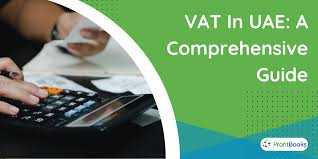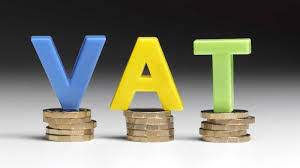Now Reading: Navigating VAT in UAE Real Estate Transactions: A Comprehensive Guide
-
01
Navigating VAT in UAE Real Estate Transactions: A Comprehensive Guide
Navigating VAT in UAE Real Estate Transactions: A Comprehensive Guide

Table of Contents
Navigating VAT in UAE Real Estate Transactions: A Comprehensive Guide
The introduction of Value Added Tax (VAT) in the UAE on January 1, 2018, marked a significant shift in the country’s tax landscape. For real estate investors and developers, understanding the nuances of VAT is crucial to ensure compliance and optimize financial strategies. This guide provides an in-depth look at how VAT applies to various real estate transactions in the UAE.
1. VAT on Residential Real Estate

Residential properties in the UAE are subject to specific VAT treatments:
- First Supply (Within 3 Years of Completion): The initial sale or lease of a newly constructed residential property within three years of its completion is zero-rated for VAT purposes. This means no VAT is charged, and developers can recover VAT incurred on construction-related expenses.
- Subsequent Supplies: After the initial three-year period, any subsequent sale or lease of the residential property is exempt from VAT. However, developers cannot reclaim VAT on expenses related to these exempt transactions.
- Conversion from Commercial to Residential Use: If a property is converted from commercial to residential use, the VAT treatment depends on the property’s status at the time of supply. If the property is used for residential purposes, the supply is exempt from VAT.
2. VAT on Commercial Real Estate
Commercial properties, including offices, retail spaces, and warehouses, are subject to standard VAT rates:
- Standard Rate: The sale or lease of commercial properties is subject to a 5% VAT rate.
- VAT Recovery: Businesses purchasing or leasing commercial properties can recover VAT paid on related expenses, provided they are VAT-registered and the expenses are used for taxable business activities.
- Special Payment Mechanism (SPM): For transactions involving the sale of commercial property by an investor (non-developer), the buyer is required to pay the 5% VAT directly to the Federal Tax Authority (FTA) rather than to the seller. This mechanism ensures compliance and mitigates VAT risk at the point of title transfer.
3. VAT on Mixed-Use Properties

Properties that serve both residential and commercial purposes, such as apartment buildings with retail shops, are classified as mixed-use properties
- VAT Treatment: The residential portion remains exempt from VAT, while the commercial portion is subject to the standard 5% VAT rate.
- Input VAT Recovery: Developers and investors must carefully allocate VAT on expenses between the residential and commercial portions. Input VAT related to the commercial portion can be reclaimed, provided the property is used for taxable business activities.
4. VAT on Bare Land
Bare land, defined as land without any permanent structures, is exempt from VAT in the UAE. However, developers cannot reclaim VAT on expenses related to the acquisition and development of bare land.
5. VAT on Real Estate Services

Certain services related to real estate transactions are subject to VAT:
- Applicable Services: Services such as property management, maintenance, agency commission fees, and owners’ association costs are subject to the standard 5% VAT rate.
- Tenant Responsibilities: While rent for residential properties is exempt from VAT, tenants may be required to pay VAT on services like water, electricity, gas, air conditioning, and agency fees.
6. VAT Registration Requirements
Entities involved in real estate transactions must be aware of VAT registration thresholds:
- Mandatory Registration: Businesses whose taxable supplies exceed AED 375,000 annually are required to register for VAT with the FTA.
- Voluntary Registration: Businesses with taxable supplies below AED 375,000 may opt for voluntary VAT registration.
7. Compliance and Documentation
Ensuring compliance with VAT regulations is essential for all parties involved in real estate transactions:
- Tax Invoices: Sellers and landlords must issue tax invoices for transactions subject to VAT, detailing the VAT amount charged.
- Record Keeping: Maintaining accurate records of all VAT-related transactions is crucial for VAT reporting and audits.
- VAT Returns: VAT-registered businesses must file periodic VAT returns with the FTA, reporting output tax collected and input tax paid.
Conclusion
Navigating VAT in UAE real estate transactions requires a thorough understanding of the applicable rules and regulations. By distinguishing between residential and commercial properties, understanding VAT treatments for various transactions, and ensuring compliance with registration and documentation requirements, stakeholders can effectively manage VAT implications and optimize their real estate investments. Consulting with tax professionals and staying informed about regulatory updates is advisable to maintain compliance and capitalize on available tax benefits.
WATCH MORE:https://www.youtube.com/watch?v=cqUhtdmUWr4
READ MORE: Foreign Investors in UAE Real Estate: Tax Considerations and Market Trends



















